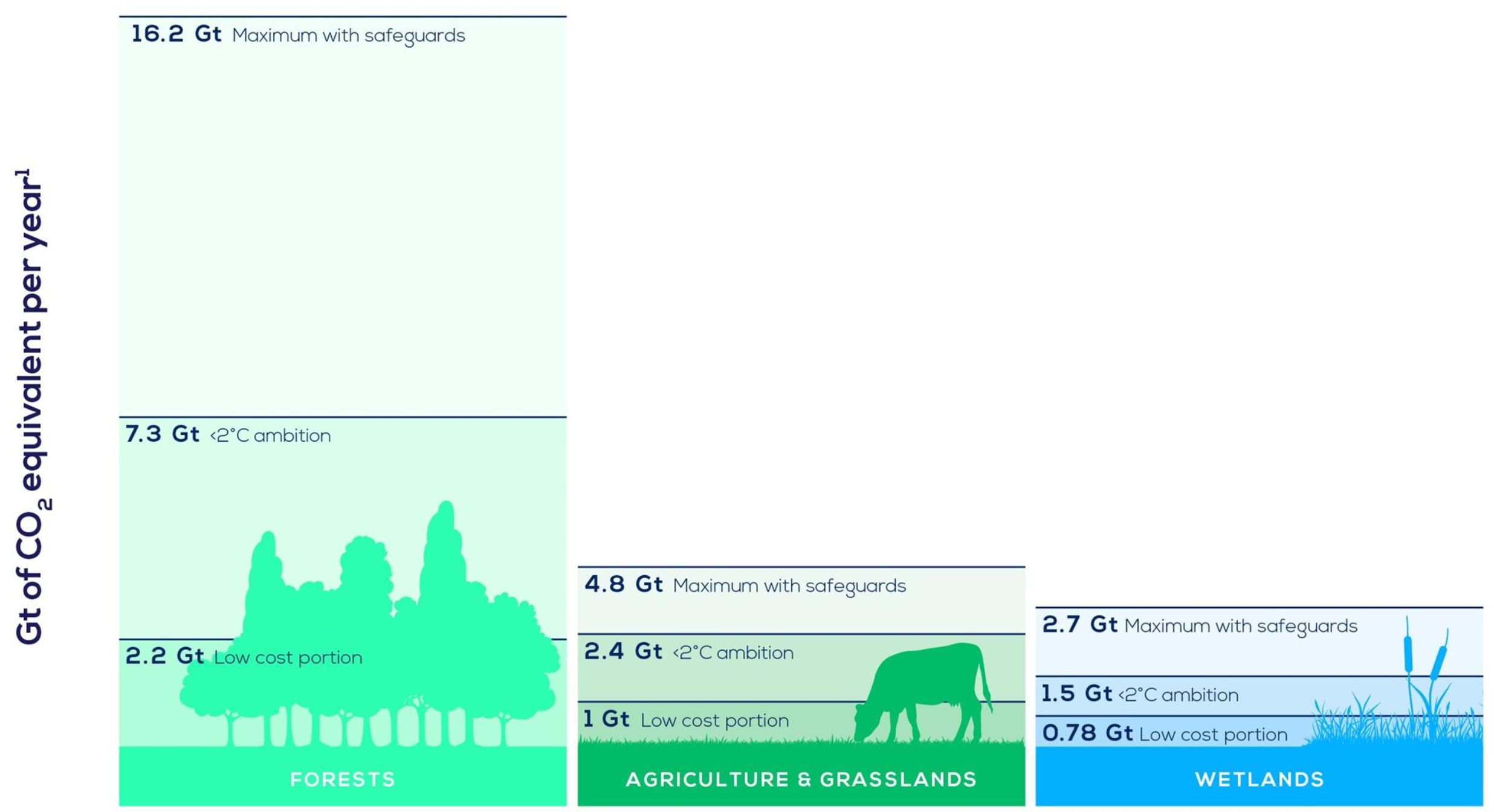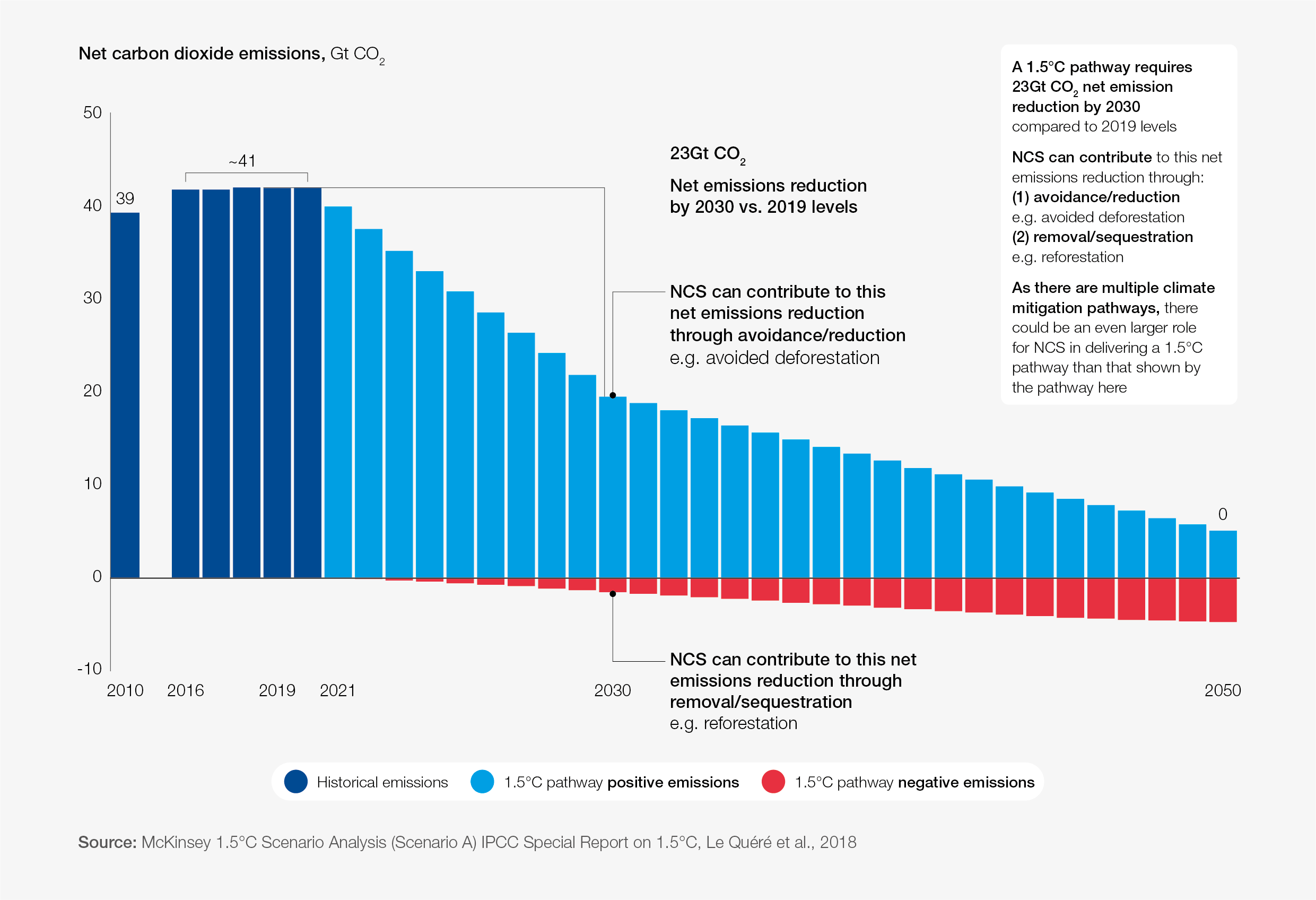Bold use of green tech can foster a new era of sustainable growth
New green tech can reduce our environmental footprint while enabling sustainable growth.
Image: Reuters/Mike Segar
Philip Meissner
Professor ESCP Business School, Founder & Director European Center for Digital CompetitivenessStay up to date:
Agriculture, Food and Beverage
- Decarbonizing green technologies can reconcile economic progress with the production limits of our planet.
- New green tech, from vertical farming to 3D printing and plant-based meat, can reduce our environmental footprint while enabling sustainable growth.
- Scaling up green tech means an increase in investment in the field and greater exchange between business and deep tech experts.
Imagine growing crops with 95% less water, or producing meat through methods that free up 80% of the world’s agricultural land. And how about eliminating the CO2 of global supply chains by simply moving production facilities closer to customers and cutting the parts used in the final product a hundredfold? What might sound like crazy ideas are solutions available today through green technologies.
Green tech describes the technology and science-based solutions that mitigate the negative human impact on the environment in a broad range of fields from agriculture to construction. Sixteen per cent of global emissions are caused by transportation, 19% by agriculture, 27% by energy production, 31% by construction and production, with the remaining 7% caused by heating. Green technologies can be applied in all of these CO2-emitting sectors, thus offering broad solutions for sustainable growth.
What green tech can do
In the field of agriculture, vertical farming can revolutionize how vegetables are produced. Berlin-based Infarm uses 99% less space, 75% less fertilizer and 95% less water than conventional farming. Protein can also be produced in a much better way: The Swiss start-up Planted produces plant-based (and delicious) meat alternatives from kebab to Peking duck with 74% less CO2 emissions. And the implications of plant-based meat go even further: They could free up the 80% of agricultural land worldwide used for livestock, which currently only produces 20% of calories.
Another innovation probably less often seen as a green technology is 3D printing. Its potential becomes clear when looking at Relativity Space, a company that can 3D print entire rockets as well as their engines using a hundred times fewer parts than a typical rocket.
This translates to fewer parts that need to be shipped to production sites for final assembly, and the potential to ultimately move from a centralized to a decentralized production infrastructure that can reduce both the CO2 emitted in factories as well as in supply chains.
In addition, green tech changes the way energy can be produced and stored. Among the most innovative companies in the field are Energy Vault, which uses gravitational energy to efficiently store renewable power, and Heliogen, which produces green hydrogen entirely from solar power.
While vertical farming is radically different from 3D printing and energy storage, there is one thing that all these solutions have in common: They reconcile technological advances with the production limits of our planet and enable sustainable progress. Green tech could thus be a major solution for increasing living standards around the world and a significant contributor to the UN Sustainable Development Goals.
Being bold for good
What needs to happen to fully utilize the potential of green tech for our planet and our societies? How can bold innovation in the field be fostered? Fundamentally, we need to scale capital and top talent in the green tech space around the world.
In terms of the required capital, many investors have publicly expressed their high expectations for the sector. Blackrock’s CEO Larry Fink, for example, stated that he believes the next 1,000 unicorns will be green energy companies.
Bill Gates estimates that the sector will produce eight to 10 Teslas, a Google, an Amazon and a Microsoft. These prospects have inspired rising investments into green tech with an annual growth of 210%, according to PWC.
Accept our marketing cookies to access this content.
These cookies are currently disabled in your browser.
If these growing investments are combined with innovative minds and bold entrepreneurs, green tech can scale. In my view, the university ecosystem plays a crucial part in this. Yet, given the deep technological knowledge as well as the business skills needed to invent and commercialize successfully in the green tech space, we need to foster a new and open ecosystem that breaks silos and enables more cross-sectoral collaboration.
This way new bonds between students and alumni of both technical universities and business schools can be built, so that teams can form to create positive change via green technology solutions.
What is the World Economic Forum doing on natural climate solutions?
Green tech opens a path towards sustainable growth that can reconcile technological progress with the production limits of our planet. Now it is up to us to start this journey.
Don't miss any update on this topic
Create a free account and access your personalized content collection with our latest publications and analyses.
License and Republishing
World Economic Forum articles may be republished in accordance with the Creative Commons Attribution-NonCommercial-NoDerivatives 4.0 International Public License, and in accordance with our Terms of Use.
The views expressed in this article are those of the author alone and not the World Economic Forum.
Related topics:
Forum Stories newsletter
Bringing you weekly curated insights and analysis on the global issues that matter.
More on Industries in DepthSee all
David Elliott and Johnny Wood
April 25, 2025
Katia Moskvitch
April 14, 2025
Cathy Li and Andrew Caruana Galizia
March 3, 2025
Francesco Venturini and Bart Valkhof
February 27, 2025
Joe Myers and Madeleine North
February 19, 2025







